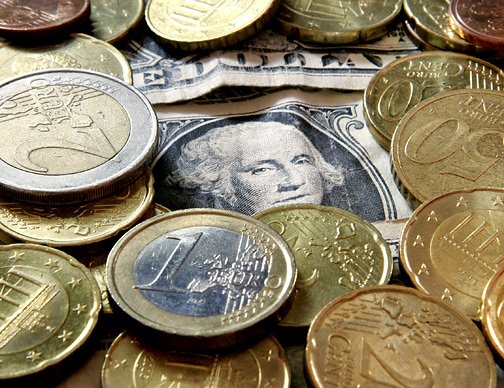The euro has reached a nine-year low against the US dollar as investors predicted the European Central Bank (ECB) may act to stimulate the economy.
The European currency fell by 1.2% against the dollar to $1.1864, marking its weakest level since March 2006, before recovering slightly to $1.19370.
The drop follows ECB president Mario Draghi’s comments indicating the bank could soon start quantitative easing (QE).
Greek political turmoil also weighed on the currency.
Although the ECB has already cut interest rates to a record low level, and also bought some bonds issued by private companies, a full-scale program of QE has not yet been launched.
On January 2, Mario Draghi hinted in a newspaper interview that the ECB might soon start a policy of QE by buying government bonds, thus copying its counterparts in the UK and US.
The purpose would be to inject cash into the banking system, stimulate the economy and push prices higher.
In an interview with German newspaper Handelsblatt, Mario Draghi said: “We are making technical preparations to alter the size, pace and composition of our measures in early 2015.”
Political turmoil in Greece also weighed on the euro, with fears that the general election on January 25, could see the anti-austerity, left-wing Syriza party take control of the country.
The possibility has sparked fears about whether Greece will stick to the terms of its international bailout and stay in the eurozone.
On January 3, German magazine Der Spiegel magazine said Germany believes the eurozone would be able to cope with a Greek “exit” from the euro, if the Syriza party wins the Greek election.
Reacting to the Der Speigel report, a spokesman for German Chancellor Angela Merkel said there was no change in German policy and the government expects Greece to fulfill its obligations under the EU, ECB and IMF bailout.
France’s President Francois Hollande also commented, saying it was now “up to the Greeks” to decide whether to remain a part of the single currency.
“Europe cannot continue to be identified by austerity,” Francois Hollande added, suggesting that the eurozone needs to focus more on growth than reducing its deficit.
Analysts said the euro was likely to remain volatile for the next few weeks.
